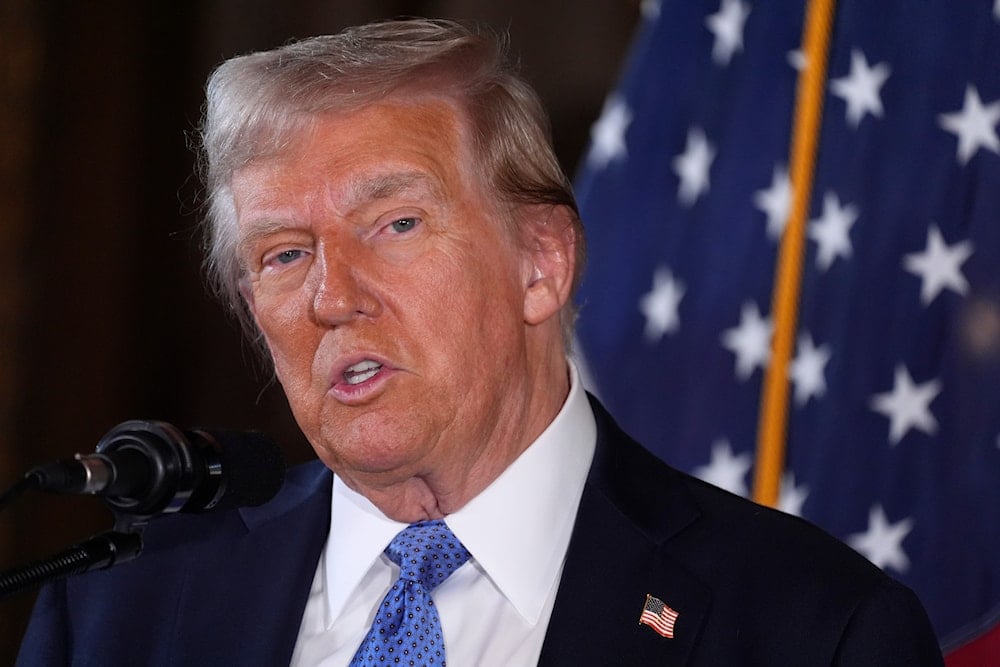Trump tells EU to buy US oil, gas or face tariffs: Financial Times
The US president-elect warns that member states of the EU could face tariffs unless they commit to making significant purchases from the US.
-

President-elect Donald Trump speaks during a news conference at Mar-a-Lago, on December 16, 2024, in Palm Beach, Florida. (AP)
The Financial Times (FT) reported on Friday that US President-elect Donald Trump has warned the EU that it must agree to purchase "large scale" amounts of US oil and gas or face tariffs.
“I told the European Union that they must make up their tremendous deficit with the United States by the large-scale purchase of our oil and gas. Otherwise, it is TARIFFS all the way!!!” Trump wrote on his Truth Social platform on Friday.
Trump's threat comes after Brussels had already expressed interest in purchasing more US-liquefied natural gas, which has become crucial for the EU following Russia's reduction of fossil fuel supplies after the start of the NATO-orchestrated war in Ukraine.
In November, European Commission President Ursula von der Leyen stated that the EU would consider increasing its purchase of gas from the US, according to FT.
Read next: Trump vows 25% tariffs on Mexico, Canada and deeper tariffs on China.
“We still get a lot of LNG from Russia and why not replace it with American LNG, which is cheaper for us and brings down our energy prices,” she told reporters.
“It seems odd as a ‘threat’ given that von der Leyen alluded to the possibility of doing precisely this,” one EU official observed.
Trump has threatened a blanket tariff of up to 20 percent on all non-Chinese US imports. Last month, European Central Bank President Christine Lagarde urged Europe's political leaders to work with him on tariffs and increase purchases of US-made products.
Borrell warns of consequences for transatlantic relations under Trump
EU foreign policy chief Josep Borrell issued a warning on November 21 that Trump's proposed tariffs and foreign policy approach could have "far-reaching consequences" for the transatlantic relationship.
Borrell's remarks came during an opening speech at the European Parliament plenary session, where he discussed the potential disruption posed by Trump's prior threat to impose a 10% customs tariff on European goods.
"There will be far-reaching consequences for our bilateral relationship," Borrell said, warning that such tariffs could destabilize economic ties between the EU and the US, with potential impacts on both economies.
That said, Trump's proposal to implement a 10% tariff on all US imports has raised significant concerns among economists and trade experts.
A broad-based tariff would likely increase costs for American consumers and businesses, as imported goods become more expensive. This could result in higher prices for products ranging from electronics to clothing, straining household budgets and potentially slowing economic growth.
The proposed tariffs could also strain relationships with key trading partners, particularly the EU, which has expressed apprehension that such measures could prompt retaliatory tariffs.

 3 Min Read
3 Min Read








